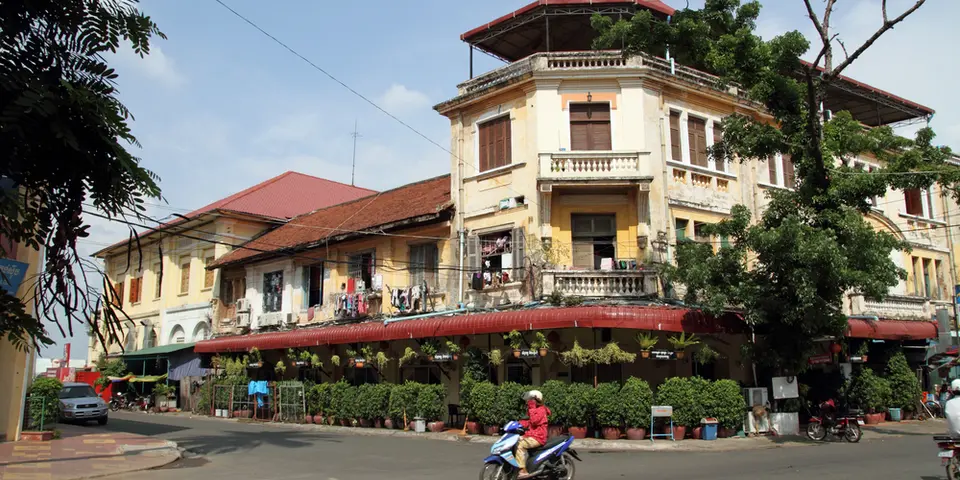
MPs warn against authoritarian turn of COVID-19 responses
March 24, 2020

JAKARTA – As Cambodia considers joining other Southeast Asian countries in declaring a state of emergency in their response to the COVID-19 pandemic, regional MPs today warned governments against using the crisis to crack down on critics, assert their power and threaten democratic institutions.
In recent weeks, the Philippines and Thailand declared states of emergency amid the spreading of COVID-19, while Cambodia is expected to soon adopt a new law on state of emergency. All of the laws contain provisions that, to varying degrees, excessively restrict people’s human rights, or place unchecked and unlimited powers in the hands of the executive, said ASEAN Parliamentarians for Human Rights (APHR.)
“Using a global pandemic, and times of grief and worry, to grab more power or satisfy thirst for unlimited powers is appalling,” said Charles Santiago, Malaysian MP and Chair of APHR. “While these are extraordinary times that may require extraordinary measures, we must guard against the authoritarian turn of some governments’ responses to COVID-19, or the next casualty could be our rights and democracies.”
To ensure that emergency measures are not used to crackdown on human rights, or to permanently usurp democratic institutions, they should be necessary and proportionate in addressing the threats they are meant to mitigate, in this instance health. They should only be temporary, reviewed regularly and be subject to meaningful legislative and judicial oversight, APHR said.
Unfortunately, the emergency provisions recently adopted excessively restrict the right to freedom of expression.
For instance, in the Philippines, Section 6(6) of the “Bayanihan to Heal As One Act,” opens the possibility for individuals to be jailed for spreading false information about COVID-19. In Thailand, sections 9.2 and 9.3 of the 2005 Emergency Decree, and Section 6 of the new emergency regulation, allow the Prime Minister to censor publications on a broad range of vague reasons. In Cambodia, the draft law goes even further, granting authorities powers to monitor, observe and collect information from all telecommunications and ban information that could “scare” the public.
“No-one should trick themselves into believing that the intention behind these provisions is to ensure the free flow of accurate information about the pandemic. All of these governments already have a pretty appalling record when it comes to tolerance for critics,” said Teddy Baguilat, a former Philippines Member of Parliament (MP) and Board Member of APHR. “Recent arrests in Cambodia and Thailand for comments on the governments’ response to the crisis are a clear indication of what’s to come.These provisions are there to grant them the powers to further crackdown on already shrinking civil space, and crush dissent,” Baguilat said.
Also of serious concern are the excessively broad and unnecessary powers in the emergency laws that do nothing to address the pandemic, but place broad power in the hands of notorious human rights abusers, said APHR.
In Thailand, officials now have additional powers to arrest people without charge, and to hold them in unofficial places of detention if they are suspected of having a role in causing an emergency. In Cambodia, the draft law specifically states that the government could “adopt any measures” it deems appropriate.
“Prime Ministers Prayut Chan-o-cha and Hun Sen have both shown in the past already creative ways to hang onto power. We need to make sure that the COVID-19 pandemic does not become their new tool to further legitimise and secure their authoritarian leadership,” Baguilat said.
Further, these broad emergency powers are particularly worrying given they are not subject to parliamentary checks or meaningful judicial scrutiny, APHR added.
In Thailand, the 2005 Emergency Decree places the Prime Minister totally outside the purview of the parliament or the judiciary. The Decree makes no mention of parliament, and extensions of the declaration of emergency only require approval from the Council of Ministers. Further, the decree grants immunity to officials acting under the emergency powers. In Cambodia the draft law only requires the government to inform the National Assembly and the Senate, but grants them no oversight role.
In addition, emergency legislation should only be enacted temporarily to ensure the new powers granted to the executive do not become the new norm. Worryingly, Cambodia’s draft law stipulates that the state of emergency “may or may not have a time limit.”
“What clearer trigger warning is there than one of the longest serving leaders of the world attempting to pass a law that could grant him emergency powers indefinitely?,” said Teddy Baguilat.
“It is clear that COVID-19 is not only putting our health in danger. We must mobilise our efforts to ensure our human rights are not imperiled by this crisis. It is crucial that the institutions that are so vital to the health of a functioning democracy and the human rights of citizens are not the next victims of the pandemic,” said Charles Santiago. “Otherwise, when the COVID-19 virus is long gone, we may yet still be enduring the abuses of autocrats reluctant to hand back their newly-grabbed powers.”
ASEAN Parliamentarians for Human Rights (APHR) was founded in June 2013 with the objective of promoting democracy and human rights across Southeast Asia. Our founding members include many of the region's most progressive Members of Parliament (MPs), with a proven track record of human rights advocacy work.